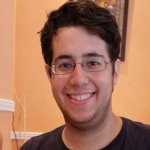Musings from Students of the Pardes Institute of Jewish Studies in Jerusalem
Posted on October 2, 2014 by Binyamin Cohen
 This year Yom Kippur falls on Shabbat: the two holiest days in the Jewish calendar at the same time. However, the ethos of Yom Kippur and the ethos of Shabbat are contradictory. How do we negotiate these differences, and how do we find compromise between them? Before we answer those questions, we must first address the internal contradictions inherent in Yom Kippur and Shabbat.
This year Yom Kippur falls on Shabbat: the two holiest days in the Jewish calendar at the same time. However, the ethos of Yom Kippur and the ethos of Shabbat are contradictory. How do we negotiate these differences, and how do we find compromise between them? Before we answer those questions, we must first address the internal contradictions inherent in Yom Kippur and Shabbat.
Yom Kippur is described by the Torah as a day for us: מִקְרָא-קֹדֶשׁ יִהְיֶה לָכֶם (Lev.23:27), שַׁבַּת שַׁבָּתוֹן הוּא לָכֶם (Lev. 23:32). Indeed, in this, the only passage where Yom Kippur is discussed (other than the lengthy description of the Temple service), all the commands of the holiday are voiced as “to you”, “for you”. But we know that on Yom Kippur we “afflict” ourselves: we abstain from eating, drinking, washing, and other pleasures. Surely afflicting ourselves is in direct conflict with these statements of how Yom Kippur is a day for us! We would think that on a day for us we would be able to relax, eat, and enjoy ourselves.
Shabbat poses the opposite conundrum: it is a day where we act as if it were for us. We do all those things: relax, eat, enjoy ourselves. But Shabbat is called a day for God: שַׁבָּת הִוא לַה’ (Lev.23:3). Shabbat is the day for God, the day we would think we should afflict ourselves, forget about our worldly wants, and focus on service to the Divine.
To resolve these contradictions, we must reframe how we understand “for us” and “for God”. Yom Kippur is not a day for us in the sense of being a day for us to enjoy; it is a day for us to work on ourselves, to focus on worldly problems that we can fix. Shabbat is not a day for God in the sense of serving God; it is a day that’s very essence is beyond us. Shabbat is so powerful that in its very nature it is greater than us: it exists and has holiness and majesty regardless of how we act upon it. We therefore revel in the greatness and splendour of the day, a celebration of the universe.
Yom Kippur, on the other hand, is only what we make of it. In order for us to make the most of Yom Kippur, to achieve repentance and purity of heart and body, we must take away worldly distractions from ourselves.
The first set of Tablets, which were ultimately destroyed, were given to Moses on Shabbat. These Tablets, which God created with his own “hand”, have left the world: there establishment, ultimately, was not permanent. However, the second set of Tablets, which Moses carved himself, are the ones that travelled with Israel in the desert, the ones that led them into battle for generations, and while they disappeared millennia ago, they are permanent, merely awaiting our Redemption. These Tablets were given on Yom Kippur.
This is an extremely powerful metaphor: the heavenly, upper, beyond-us Tablets, have less power and permanence than the worldly, lower, Man-made ones. What does this tell us about the days on which these Tablets were given, our contradictory Shabbat and Yom Kippur? It tells us that the things we make for ourselves on Yom Kippur are lasting and powerful. And while Shabbat certainly has power and majesty, its impact is necessarily limited, because it comes from without. That is why Yom Kippur is a day for us. God could have given us every Shabbat to atone for our sins. But Shabbat is His; Yom Kippur is ours. It is through what we make for ourselves that we are changed. We may receive moments of divine intervention or assistance, but ultimately, it is the things we create for ourselves in life that last: experiences, skills, spiritual growth.
So how do we find compromise between these conflicting ideas on a Yom Kippur that falls on Shabbat? How do we find joy and happiness on Shabbat when we are afflicting ourselves on Yom Kippur? We must remember the double power that such a day gives us. We have the opportunity to attend to our day on God’s day: we can combine the inspiration and joy He creates for us in the world with our internal struggle, and feel that on this Yom Kippur especially, God is listening to our prayers, and He knows that on this, our day, we stand open before him.
G’mar Chatima Tova, גמר חתימה טובה
Based on teachings from Netivot Shalom, by Rabbi Sholom Noach Berezovsky and Rabbi Levi Yitzchak of Berdichev